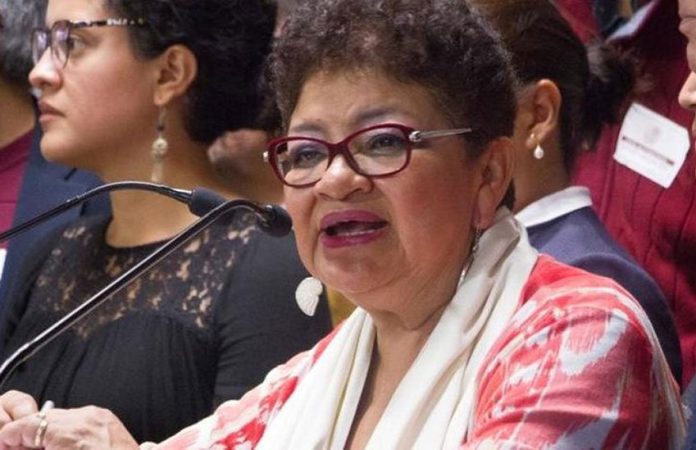Mexico City’s new government has conceded that organized crime groups operate in the capital, a claim that the previous administration had rejected.
Attorney General Ernestina Godoy made the admission yesterday during a press conference.
“Is there organized crime here in the capital?” a reporter asked. “Yes, there is,” Godoy responded unequivocally.
She added that the government is continuing to analyze the security situation and will soon provide more information.
Although former mayor Miguel Ángel Mancera denied that organized crime had a presence in Mexico City, there is evidence to suggest otherwise.
In September, hitmen believed to be members of La Unión de Tepito, a criminal gang based in the notoriously dangerous neighborhood of Tepito, killed four people and wounded six more in Plaza Garibaldi, a square popular with tourists known as the capital’s home of mariachi music.
The gang is allegedly supported by the Jalisco New Generation Cartel, considered Mexico’s most powerful and dangerous criminal organization.
In July last year, narco-blockades made an unprecedented appearance in Mexico City after the suspected boss of the Tláhuac Cartel, Felipe de Jesús Pérez Luna, was killed in a confrontation with marines.
Godoy said that the new government is concerned about the current security situation, especially the high number of homicides committed with firearms.
In just two days since Mayor Claudia Sheinbaum was sworn in Wednesday, 16 murders have been reported in the capital.
They occurred in several boroughs including Gustavo A. Madero, where eight people were killed Wednesday and yesterday, including three in one incident of gun violence and two in another.
On Wednesday, a presumed criminal was gunned down in the Benito Juárez borough, a Canadian man was killed in a shopping center parking lot in the business district of Santa Fe and a man was beaten to death near the Merced market on the fringe of the historic center.
Sheinbaum told a press conference yesterday that the security situation was serious, explaining that at the beginning of the past government in 2012 there were an average of two homicides per day but that figure doubled to four in the third quarter of 2018.
Francisco Rivas, director of the civil society organization the National Citizens’ Observatory, told the newspaper Milenio that “Mexico City is living through the worst moment of violence in its history.”
In the last 21 years, he said, “there has been a substantial increase in intentional homicides.”
City authorities are also confronted with the task of combatting high levels of other crimes such as violent robberies, whose incidence is at a six-year high, and retail drug trafficking known as narcomenudeo.
A 2017 report by the city’s Public Security Secretariat (SSP) and the Attorney General’s office identified 20,000 places where drugs were being sold.
Source: El Financiero (sp), Milenio (sp)
